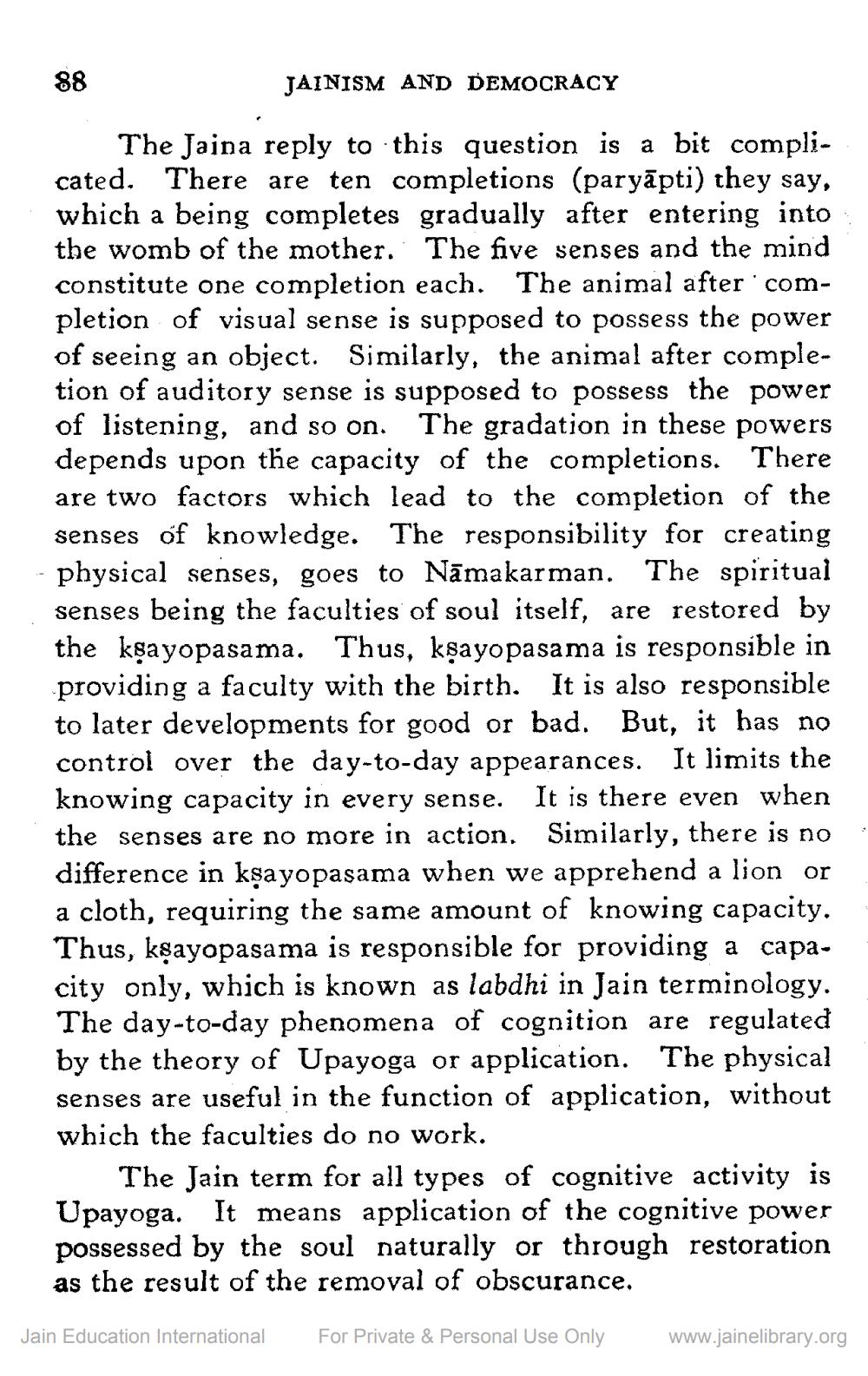________________
88
JAINISM AND DEMOCRACY
The Jaina reply to this question is a bit complicated. There are ten completions (paryāpti) they say, which a being completes gradually after entering into the womb of the mother. The five senses and the mind constitute one completion each. The animal after completion of visual sense is supposed to possess the power of seeing an object. Similarly, the animal after completion of auditory sense is supposed to possess the power of listening, and so on. The gradation in these powers depends upon the capacity of the completions. There are two factors which lead to the completion of the senses of knowledge. The responsibility for creating physical senses, goes to Nāmakarman. The spiritual senses being the faculties of soul itself, are restored by the kşayopasama. Thus, kşayopasama is responsible in providing a faculty with the birth. It is also responsible to later developments for good or bad. But, it has no control over the day-to-day appearances. It limits the knowing capacity in every sense. It is there even when the senses are no more in action. Similarly, there is no difference in kşayopasama when we apprehend a lion or a cloth, requiring the same amount of knowing capacity. Thus, kşayopasama is responsible for providing a capa. city only, which is known as labdhi in Jain terminology. The day-to-day phenomena of cognition are regulated by the theory of Upayoga or application. The physical senses are useful in the function of application, without which the faculties do no work.
The Jain term for all types of cognitive activity is Upayoga. It means application of the cognitive power possessed by the soul naturally or through restoration as the result of the removal of obscurance,
Jain Education International
For Private & Personal Use Only
www.jainelibrary.org




